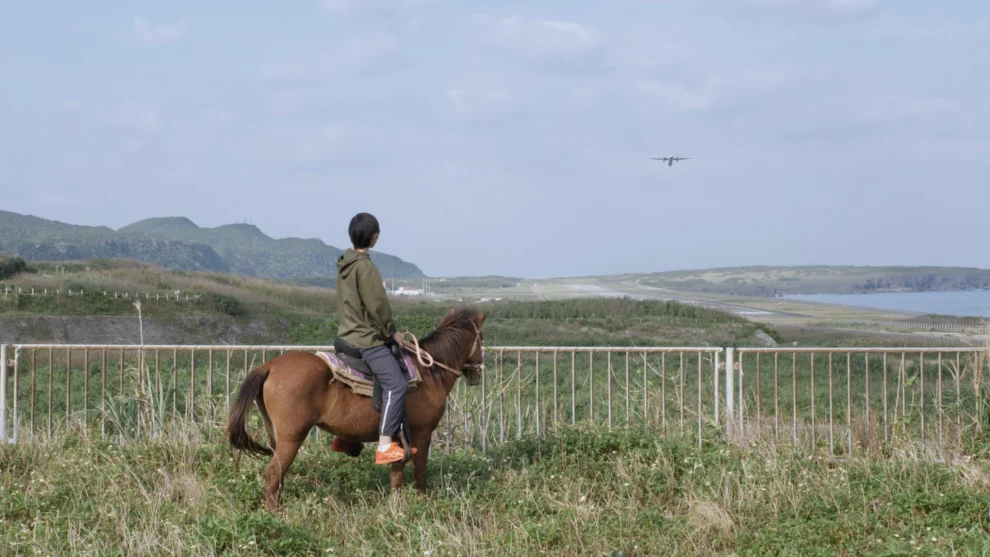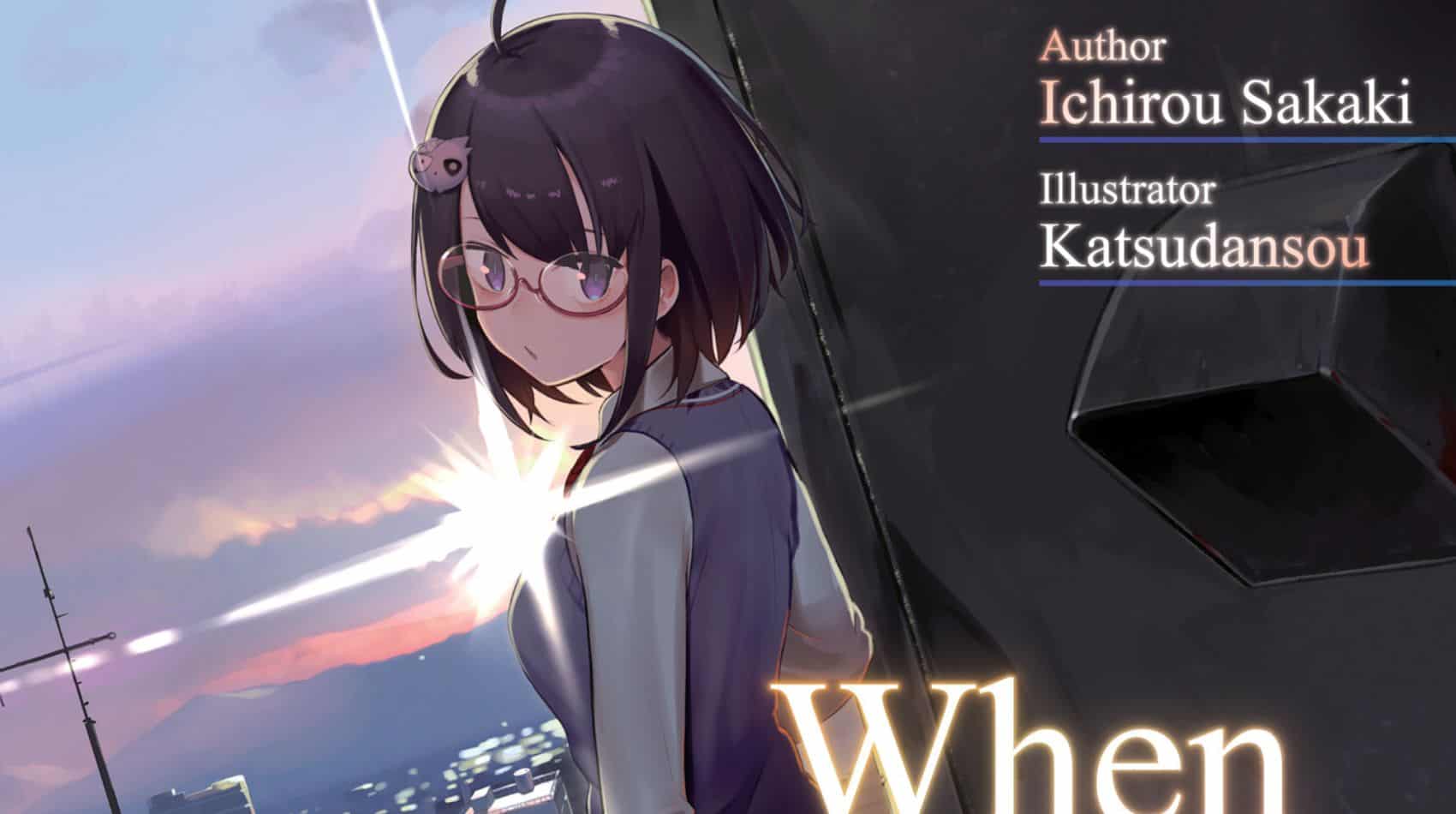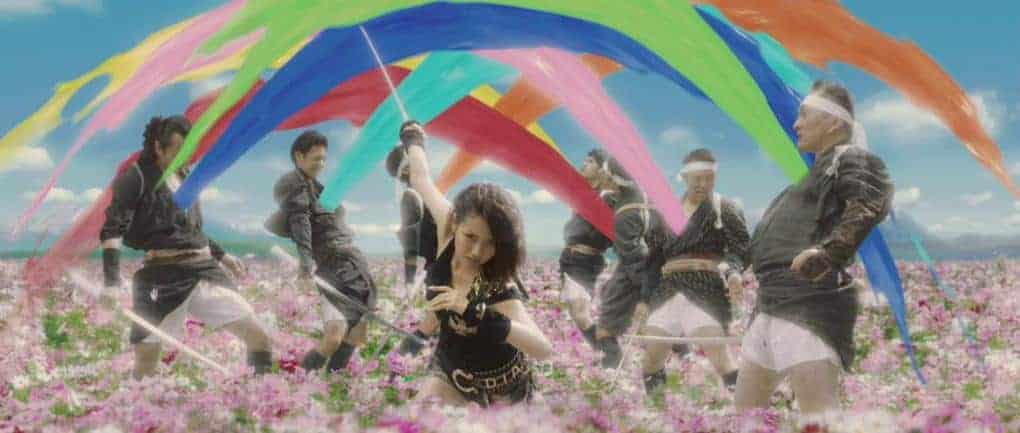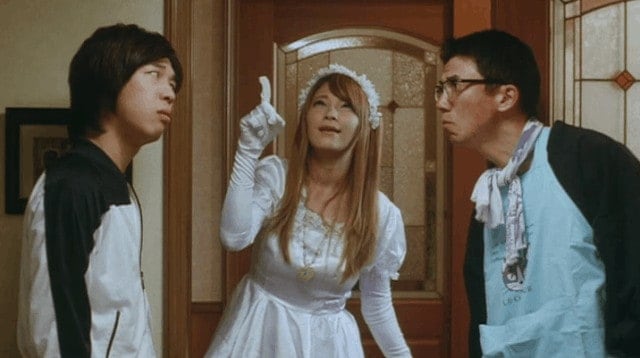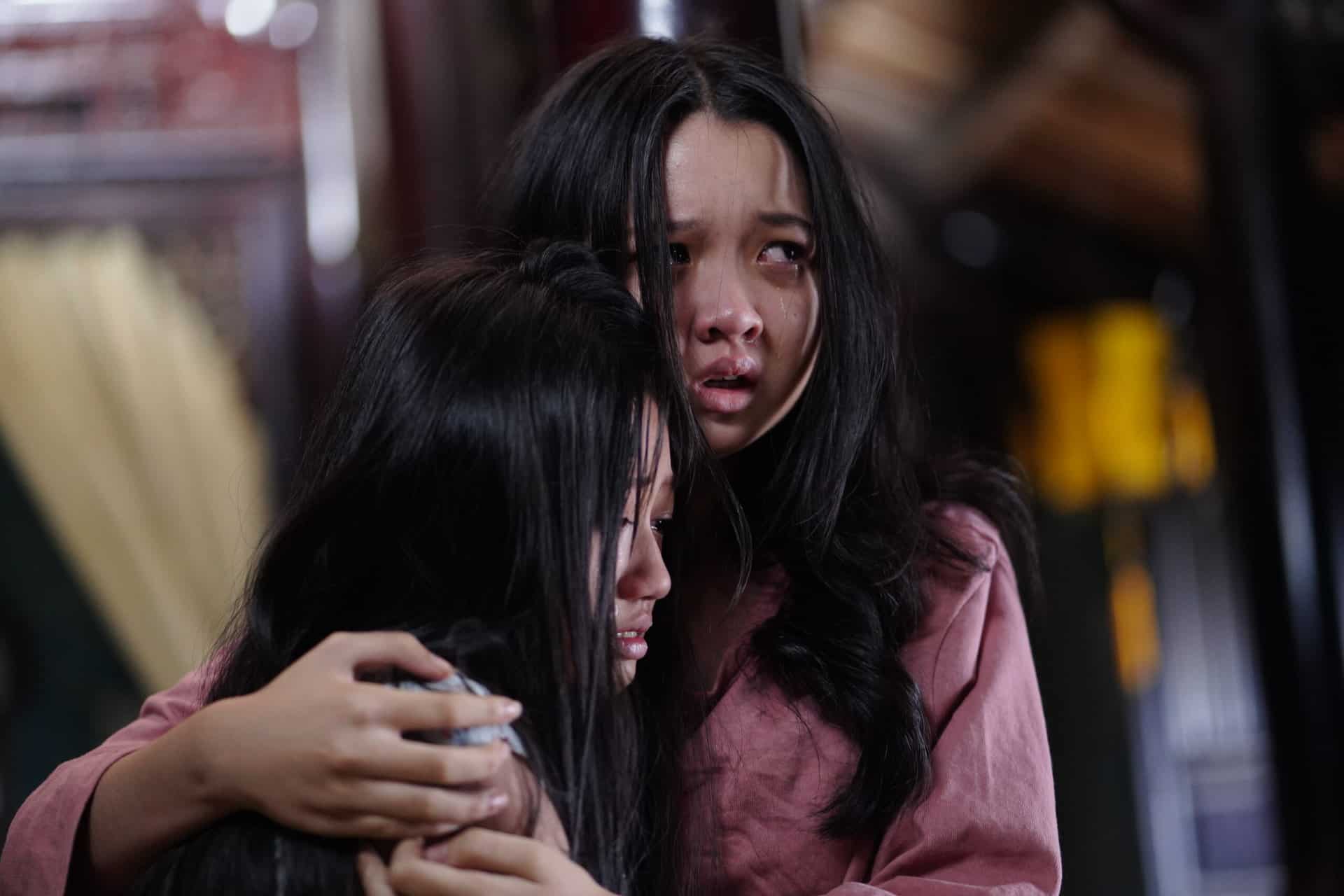Hanging on by an ever-thinning thread, the memories lingering like ghosts in the form of sunkani are waning; kept alive only by annual traditional competitions, the poetry composed on the island of Yonaguni beats significantly slower and far quieter than in the past, a distant remnant of a time fast approaching the darkness of a permanent sunset. Long facing an erosion of imperial proportions, the people inhabiting this island far beyond the fingers of Tokyo cling on to what little time their tropical paradise continues to enjoy, as the next generation venture beyond its shores for the first time to leave their marks elsewhere. Captured in limbo by artists Anush Hamzehian and Vittorio Mortarotti, ‘Yonaguni' ensures the tranquil ways of life disappearing from the island will forever be enshrined on film.
Yonaguni is screening at Camera Japan

Following the final moments of a group of burgeoning high-school students as they prepare to leave the island for the likes of Okinawa and Tokyo, ‘Yonaguni' exhibits itself in moments of stillness, a quiet meditation of a culture slipping towards the annals of history, of a language practically forgotten by its 1,500 inhabitants. A coming-of-age slice-of-life veiled as video art, the film introduces its principal focal points, namely Genki and Mimi, as quickly as they jet off away from a comparatively serene existence to continue their education; inviting the audience to listen in to their subjects' hopes, dreams, and fears, Hamzehian and Mortarotti remain detached from imposition as they flood the screen with snapshot upon snapshot of their jovial lives as well as the traditional practices and the largely untouched natural world enveloping their blossoming worldview.
Poignant yet surprisingly objective, ‘Yonaguni's nonchalance is ideally suited to framing the diminishing cultures inhabiting its namesake. Despite its melancholic tone, its youthful innocence permeates through the lens with as much wide-eyed vibrancy as a foal takes to its first steps; its largely young ‘cast' who, for all intents and purposes, are starting school for the very first time again, are a delight to watch as they frolic with their friends playing games and traversing the expanse of rock they call home. There is a deep respect and even admiration from the filmmakers for their introspection and realisation that their lives are about to dramatically change, for behind such hopeful glimmers of their bright futures lies the distinct profundity of their undertaking – when asked if a high school were to be located on the island would they stay, some of the children were resolute in their answering “no”. Yet the emotions harbored by Genki, Mimi, and their friends are not for a cultural loss but rather a familial one, the prospect of leaving those they care about behind.
Here, nestled among the beautiful stillness of the film, lies Hamzehian and Mortarotti's startling truth: with no prospects of a future tying them to their homeland, the very essence of Yonaguni remains tethered and left behind. The two filmmakers prevail in their efforts of hammering home the endangerment of the island's native language – Dunan Munui – throughout the film, a language, much like the Ainu language, forbidden under Japanese suppression. Here, it is used only to recite the traditional poetry sunkani, taught fleetingly in schools, and seldom utilised elsewhere. These sombre undertones run concurrent with the dominant narrative and are reflected in the memories bestowed upon the children by grandparents who recall their youth through stories; such a nuance between the past and the future is struck with near-obsessive precision, leaving an indelible mark on a subject matter which always runs the risk of reducing itself with sentimentality.
And yet sentimental is a word void from ‘Yonaguni''s lexicon: the film remains impartial not only due to its creator's balanced approach to the truths they desired to tell, but largely in part to its execution. The complete lack of a non-diegetic score releases the film from a superfluously emotional burden whilst the endearing photography realizes the quietude of life on the island in much the same steadiness as the poetry recited during the brief runtime. This cinematography, exquisite in its elegant simplicity, welcomes even the most casual viewer to a world it so lovingly captures, even if at times this world comes across as a mere stage. Gabriel Gonzalez and Cécile Martinaud, in charge of the film's editing, ingeniously ground the viewer within the ebb and flow of the island's naturally harmonious quintessence, providing a vantage point unobstructed by its human dilemma.
At a brief glance, ‘Yonaguni' is a defacto statement of fluctuating change, a reminder of the degradation long-held traditions are subjected to as a result of shifting demographics; however, Hamzehian and Mortarotti cleverly conceal within their brushstrokes the brutal consequences of colonial pasts and why conversations on heritage are more relevant than ever. But at its heart the film lacks the hardened agenda to call itself a hardened political statement; instead it chooses visual poetry, as intimate as a love letter, following a peaceful existence far removed from the perversions of the modern world. As the lingual and cultural ties which have held the island community together become nothing more than distant memories, Yonaguni frees its youth towards a bright future, carrying new memories to be cherished until their twilight years.


